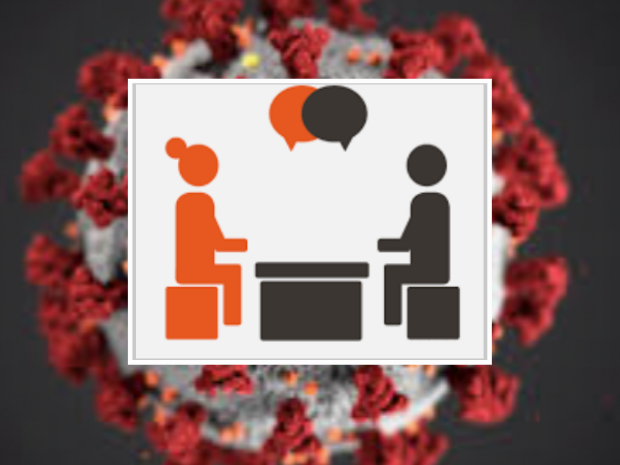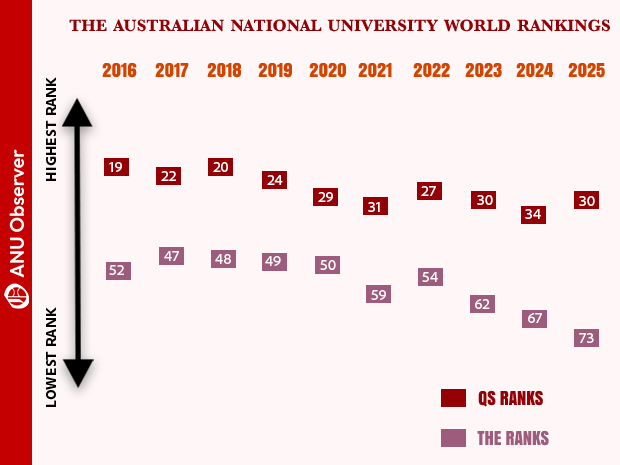Omicron at ANU: Thoughts from an Epidemiologist

By Georgie Ralphs
Ahead of the return to campus this week, Observer sat down with Dr Katrina Roper, Epidemiologist and Honorary Senior Lecturer at ANU’s National Centre for Epidemiology and Population Health to discuss the University’s response to the Omicron variant.
‘Don’t be fearful, just do the right thing”
Dr Roper’s main message for students is to “be precautious, not scared”. She criticised the media’s presentation of the Omicron variant as a mild illness and emphasised that the disease is not mild for everyone. However, despite this, she explained that Omicron is not something we should desperately fear.
Dr Roper told Observer that the vast majority of people infected with Omicron, particularly those who are fully vaccinated, will only suffer from a mild illness. However, she reminded students that anyone is at risk of progression to severe illness, hospitalisation, and potentially death. She encouraged everyone to get vaccinated in order to protect not only themselves, but those they may infect and for whom the risk of progression to severe illness is far higher.
Notwithstanding, Dr Roper reminded students that society lives and copes with vaccine preventable diseases every day. This is aided by a number of safe and effective treatments like those now available for COVID-19. Dr Roper argued that every delay of normality creates missed opportunities, and particularly lamented over the consequences of two years of impeded and disrupted education. In her view, a precautious return to normality is necessary, evidence based, and not something to fear.
Vaccinations are the best form of protection
Dr Roper advised students that vaccination is the best form of protection against progression to severe illness, hospitalisation, and death. She explained that booster doses are especially important forms of protection against Omicron. When double vaccinated, protection against the Omicron variant appears to wane faster than against Delta – declining from 81% efficacy in the first 6 months to 57% after. This efficacy increases back up to 90% after the booster dose, which is available to everyone in Australia three months after their second jab.
Dr Roper reminded International Students that vaccinations, including booster doses, are available to anyone in Australia. She added that vaccines are safe and effective for pregnant women, who are at increased risk of miscarriage or progression to severe illness if they contract covid.
Compulsory Vaccination at Residential Halls
When asked about the ANU’s requirement for vaccinations in residential halls, Dr Roper explained that institutions do not have the right to know people’s underlying health conditions and that we must respect the privacy and safety of those whom students choose to live in close quarters with.
However, Dr Roper generally prefers informed conversation rather than mandates to address vaccine hesitancy. She hopes that Heads of Halls are being prepared to provide students with accurate information.
Dr Roper suspects that the residential halls embody a uniquely communal environment and that such a mandate will unlikely be extended more broadly to classrooms on campus.
ANU’s Covid Plan is a “well-measured approach”
In Dr Roper’s opinion, ANU’s COVID safety plan is a well measured approach. Reiterating the need for a return to normality, Dr Roper felt the plan had been well informed by ANU public health experts, who understand both pandemics, as well as the ANU’s older, less ventilated buildings. She is confident that the ANU will continue to adjust its plan based on the success of each stage of reopening.
In particular, Dr Roper praised the ANU’s plan to provide eight free Rapid Antigen Tests (RATs) to students. She explained that RATs are very effective at detecting Omicron, even before showing symptoms, and that whilst we cannot keep testing forever, a period of intensive surveillance is useful to keep a handle on rates in the community. She added that, given the difficulty and cost of finding RATs, ANU’s initiative is “generous” and effective.
Dr Roper also felt that the ANU’s focus on improved ventilation is justified, given the virus is predominantly spread through methods like being breathed or coughed on. However, she added that the regular cleaning of shared surfaces is still a reasonable, low costing measure that will prevent the spread of other diseases with similar symptoms to COVID.
What does the future look like for the pandemic?
As the return to school and easing of restrictions cause case numbers to fluctuate, Dr Roper wants to remind students that the important figure – hospitalisations – has plateaued and is beginning to decrease. This is evidence that high rates of vaccination are protecting the community and preventing the diversion of resources towards COVID patients and away from other illnesses.
Dr Roper explained that viruses are hard to predict and may become more or less virulent as they pass through hosts. Since we cannot control these mutations, we should aim to prevent them, and with more people on the planet than ever before, our best protection is the more equitable distribution of vaccinations globally.
Looking forward, Dr Roper remains cautiously optimistic knowing that each time our system successfully copes with more freedom, normality is closer to being resumed.
Know something we don’t know? Email news@anuobserver.org or use our anonymous tip submission.
If you have an issue with this article, or a correction to make, you can contact us at news@anuobserver.org, submit a formal dispute, or angery react the Facebook post.Want to get involved? You can write articles, photograph, livestream or do web support. We’re also looking for someone to yell “extra!” outside Davey Lodge at 1AM. Apply today!









